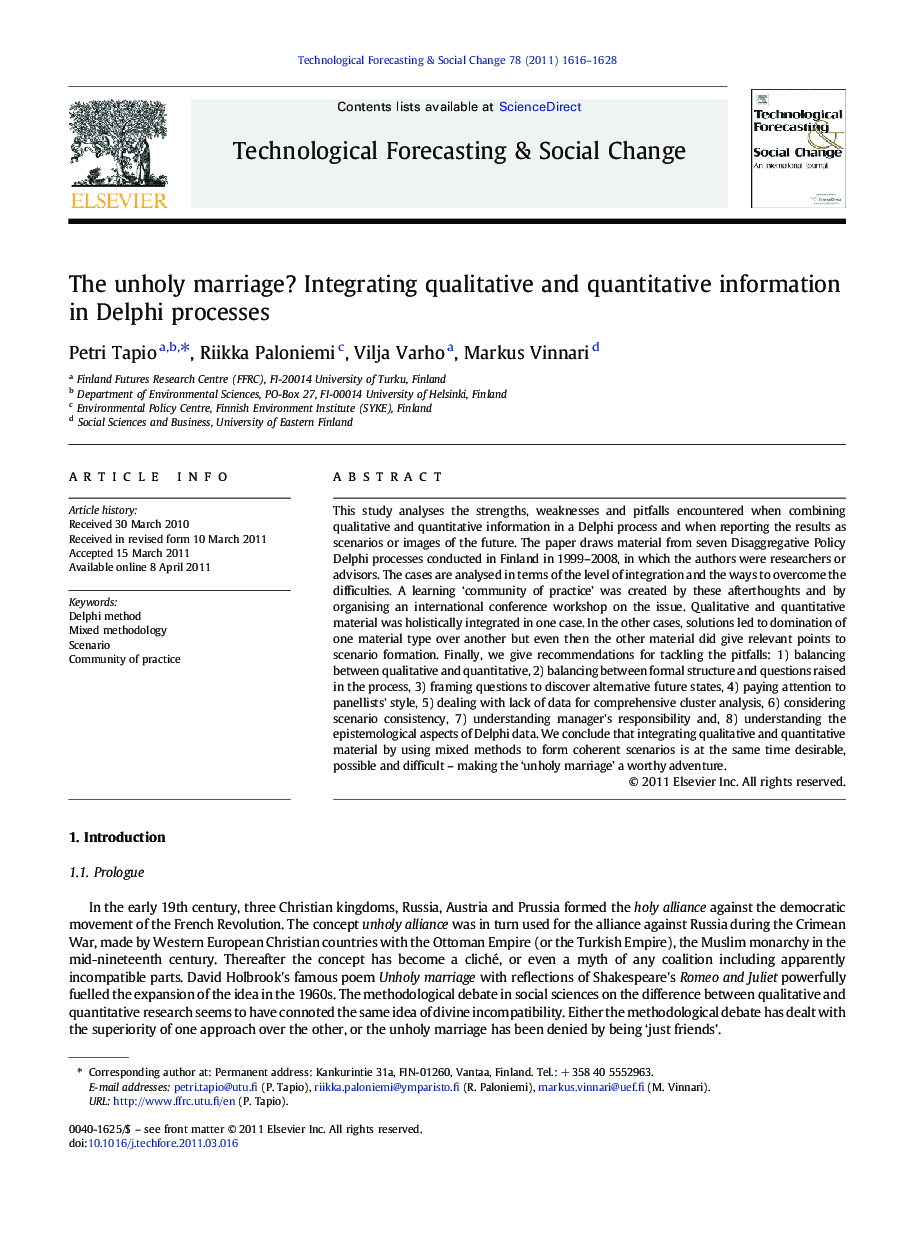| Article ID | Journal | Published Year | Pages | File Type |
|---|---|---|---|---|
| 896918 | Technological Forecasting and Social Change | 2011 | 13 Pages |
This study analyses the strengths, weaknesses and pitfalls encountered when combining qualitative and quantitative information in a Delphi process and when reporting the results as scenarios or images of the future. The paper draws material from seven Disaggregative Policy Delphi processes conducted in Finland in 1999–2008, in which the authors were researchers or advisors. The cases are analysed in terms of the level of integration and the ways to overcome the difficulties. A learning ‘community of practice’ was created by these afterthoughts and by organising an international conference workshop on the issue. Qualitative and quantitative material was holistically integrated in one case. In the other cases, solutions led to domination of one material type over another but even then the other material did give relevant points to scenario formation. Finally, we give recommendations for tackling the pitfalls: 1) balancing between qualitative and quantitative, 2) balancing between formal structure and questions raised in the process, 3) framing questions to discover alternative future states, 4) paying attention to panellists' style, 5) dealing with lack of data for comprehensive cluster analysis, 6) considering scenario consistency, 7) understanding manager's responsibility and, 8) understanding the epistemological aspects of Delphi data. We conclude that integrating qualitative and quantitative material by using mixed methods to form coherent scenarios is at the same time desirable, possible and difficult – making the ‘unholy marriage’ a worthy adventure.
Research Highlights► We develop the methodology and epistemology of using mixed methods in Delphi studies. ► Delphi studies often gather both quantitative and qualitative data. ► We show how qualitative and quantitative data can be integrated in scenarios. ► Seven Delphi studies including integration are analysed.
